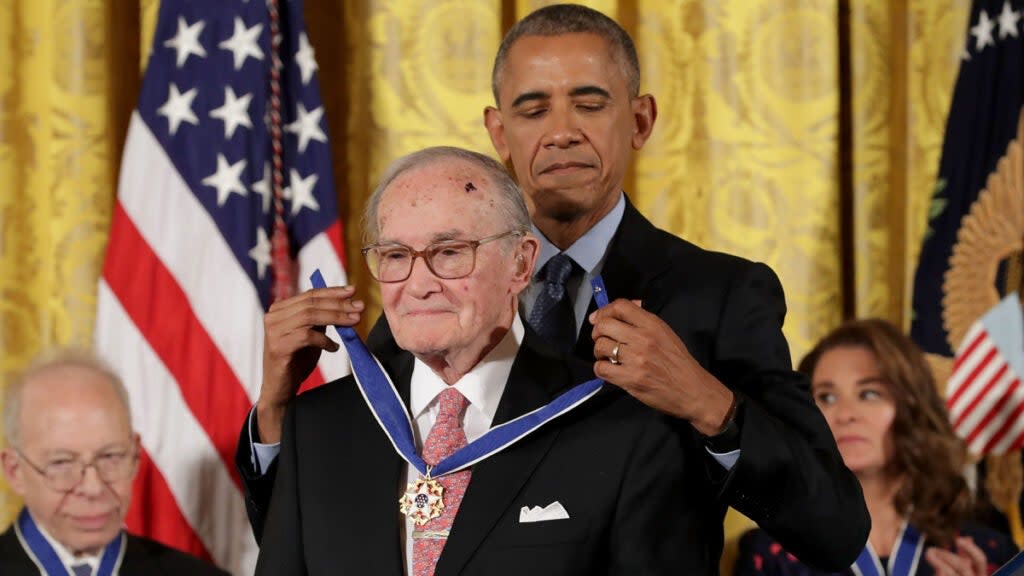Newton Minow, Former FCC Chairman Who Declared Network TV Was a ‘Vast Wasteland,’ Dies at 97

- Oops!Something went wrong.Please try again later.
- Oops!Something went wrong.Please try again later.
Newton Minow, the former chairman of the Federal Communications Commission in the 1960s who said network television was a “vast wasteland,” died Saturday in his Chicagoland, Illinois, home surrounded by loved ones. He was 97.
“He wanted to be at home,” Nell Minow, his daughter, told the Associated Press. “He had a good life.”
In 1961, President John F. Kennedy appointed Minow as FCC chief. Minow and Kennedy’s history dated back to the 1950s, when Minow was an aide to Illinois Gov. Adlai Stevenson, the Democrats’ presidential nominee in 1952 and 1956.
Also Read:
Tori Bowie, Olympic Gold-Medal-Winning Track Star, Dies at Age 32
As the chief, Minow spoke to the National Association of Broadcasters and challenge them to watch television.
“[Watch] without a book, magazine, newspaper, profit-and-loss sheet or rating book to distract you,” Minow said. “I can assure you that you will observe a vast wasteland.”
Minow added, “You will see a procession of game shows, formula comedies about totally unbelievable families, blood and thunder, mayhem, violence, sadism, murder, Western bad men, Western good men, private eyes, gangsters, more violence and cartoons. And, endlessly, commercials — many screaming, cajoling and offending.”
When Minow gave his speech, there were only three networks for people who owned a television. His speech received a lot of criticism, like from CBS President Frank Stanton who called Minow’s comments a “sensationalized and oversimplified approach.”
Though Minow was the FCC chief for only a couple of years, under his leadership new laws kicked in, like the All-Channel Receiver Act of 1962, which required that TV sets pick up UHF as well as VHF broadcasts, which opened up TV channels numbered above 13 for widespread viewing. Additionally, Congress passed bills that funded educational television.
“My faith is in the belief that this country needs and can support many voices of television — and that the more voices we hear, the better, the richer, the freer we shall be,” Minow once said. “After all, the airways belong to the people.“

